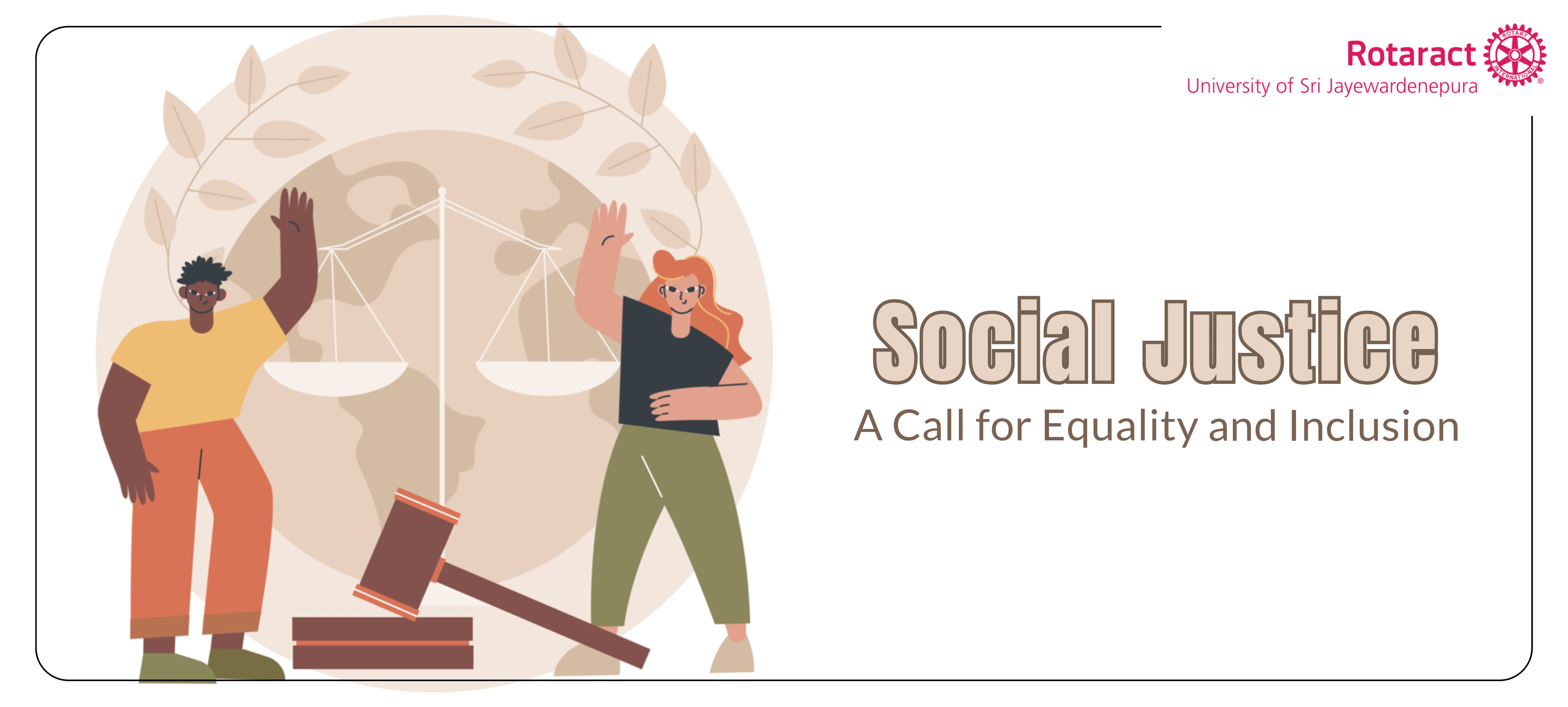“Injustice anywhere is a threat to justice everywhere.”
– Martin Luther King Jr.
Social justice is a fundamental principle of a fair and inclusive society. It is crucial to reflect on the words of Nelson Mandela, who emphasized, “To deny people their human rights is to challenge their very humanity.” This sentiment underscores the essence of social justice, ensuring that every individual, regardless of their background, enjoys the same rights and opportunities.
Every year on February 20th, the world comes together to observe the World Day of Social Justice, a day dedicated to promoting the principles of social justice, equality, and solidarity. Recognized by the United Nations, this day serves as a reminder of the importance of addressing issues such as poverty, gender inequality, discrimination, and social exclusion.
Every year on February 20th, the world comes together to observe the World Day of Social Justice, a day dedicated to promoting the principles of social justice, equality, and solidarity. Recognized by the United Nations, this day serves as a reminder of the importance of addressing issues such as poverty, gender inequality, discrimination, and social exclusion.
Malala Yousafzai, the youngest-ever Nobel Prize laureate, echoes this sentiment, stating, “We cannot all succeed when half of us are held back.” Gender equality is a pivotal aspect of social justice, and these words remind us of the collective responsibility to dismantle barriers that hinder progress.
One stark example of how the absence of social justice has devastated communities is the ongoing crisis in Syria. The Syrian conflict, which began in 2011, has resulted in widespread violence, displacement, and humanitarian suffering. At its core, the conflict stems from grievances related to political oppression, economic inequality, and social injustice. The Assad regime’s brutal crackdown on peaceful protests demanding democratic reforms ignited a full-scale civil war, leading to the displacement of millions of Syrians both internally and externally.
The lack of social justice in Syria is evident in various aspects of the conflict. Marginalized communities, including ethnic and religious minorities, have been disproportionately targeted and persecuted. The government’s systematic repression of dissent and opposition has led to widespread human rights abuses, including arbitrary arrests, torture, and extrajudicial killings. Additionally, economic disparities and corruption have fueled grievances among marginalized communities, exacerbating tensions and contributing to the conflict’s escalation.
Moreover, the humanitarian crisis resulting from the conflict highlights the profound consequences of social injustice. Millions of Syrians have been forced to flee their homes, seeking refuge in neighboring countries and beyond. However, inadequate international response and discriminatory policies have left many refugees vulnerable to exploitation, poverty, and marginalization.
The Syrian conflict serves as a tragic example of how the absence of social justice can lead to widespread suffering and instability. Addressing the root causes of the conflict, including political repression, economic inequality, and social marginalization, is essential for achieving lasting peace and stability in Syria and beyond. It underscores the urgent need for a concerted effort to promote social justice, uphold human rights, and address the grievances of marginalized communities to prevent similar crises from occurring in the future.
Throughout history, countless individuals have courageously stood up for social justice, challenging systems of oppression and advocating for equality and dignity for all. One such luminary figure is Mahatma Gandhi, whose nonviolent resistance played a pivotal role in India’s struggle for independence from British colonial rule. His commitment to truth, nonviolence, and social justice inspired millions around the world and continues to be a guiding light for movements advocating for civil rights and social change. Similarly, Rosa Parks, often hailed as the “mother of the civil rights movement,” bravely refused to give up her seat to a white passenger on a segregated bus in Montgomery, Alabama, sparking the Montgomery Bus Boycott and igniting a nationwide movement for racial equality. These individuals, and countless others like them, exemplify the power of individuals to effect positive change and challenge injustice, inspiring future generations to continue the fight for social justice.
Social justice is crucial because it ensures that all individuals are treated with fairness, dignity, and respect, regardless of their background or circumstances. By addressing systemic inequalities and disparities, social justice promotes equality of opportunity and reduces barriers to success. It fosters social cohesion and stability by promoting solidarity and cooperation among diverse communities, thereby preventing conflicts rooted in injustice and discrimination. Moreover, social justice contributes to economic growth by enabling all members of society to fully participate and contribute to the economy, leading to greater innovation and productivity. Ultimately, social justice is not only a moral imperative but also essential for building a more just, equitable, and prosperous society for everyone.
Social Justice calls upon us to be the catalysts for positive change. It encourages us to embrace diversity, eliminate discrimination, and strive for a world where justice prevails. As Desmond Tutu wisely remarked, “If you are neutral in situations of injustice, you have chosen the side of the oppressor.” Let us unite in the pursuit of social justice, working towards a world where fairness, equality, and human dignity reign supreme.
Written by: Rtr. Manushi Rathnayake
Graphic design by: Rtr. Sathmi Dinanja



0 Comments